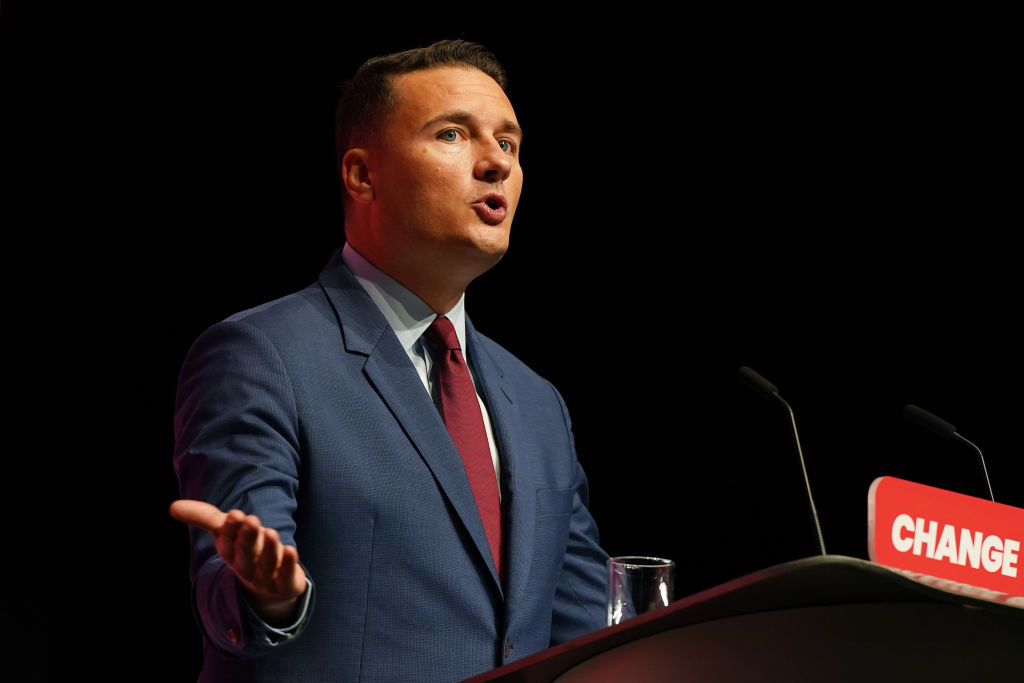There is much that is good in today’s NHS elective recovery announcement: changes to incentives for trusts so that they are rewarded for clearing their backlogs faster; a new partnership agreement with the private sector; a proper plan for returning to 92 per cent cent of patients waiting no longer than 18 weeks from referral to treatment by 2029; minimum standards for elective care; and so on. But until we know the government’s overarching plan for reforming the NHS, it’s difficult to make much sense of the piecemeal announcements we are getting before then.
It is not just the failure to reform social care, though, that makes it more difficult to realise all the other planned reforms.
Wes Streeting tried to justify the government’s decision to delay social care reform when he made a statement in the Commons this afternoon, saying ‘there is plenty of blame to go around’ for the failure of the past few decades, before saying ‘it is time for all of us across this House to do things differently’.
That ‘doing things differently’ sounded oddly like the way things have been done for the past few decades, which is to try to reach a consensus between the parties on reform and have another review. Streeting himself told the chamber that ‘there hasn’t been a shortage of good ideas in the past 15 years, but a lack of good politics’ and that ‘I hope all of us across this House will put aside our ideological and partisan differences and work together on this to finally find a way through to a long-term plan that can build the broad consensus we need’. He repeatedly emphasised that Louise Casey was ‘one of our country’s leading social reformers’ and not someone it was easy to say no to. He will, though, have three years in which he doesn’t have to say yes or no to any of Casey’s long-term recommendations for reform.
On the NHS itself, Streeting claimed that ‘this Labour government is prescribing the cure’ to the problem that Lord Darzi diagnosed in his review of the health service. He said Britain now had a ‘two-tier healthcare’ system in this country in which ‘people who can afford it are increasingly going private to skip the queue, while those who can’t are left behind: working people are going into debt and others are running fundraisers to pay to get an operation’. He said the government would make ‘no apology’ for treating ‘working people faster’ – something he later explained didn’t mean that stay at home mothers or carers wouldn’t be treated as a priority, but ‘the fact that working class people are so often left behind with a two tier system’. It is hardly surprising that Labour secretaries of state like Streeting and Education Secretary Bridget Phillipson talk about class so much when justifying their reforms – but it is worth pointing out as a clear theme of this government.
But Streeting wasn’t setting out the full extent of his reforms, because he has to wait until the ‘national conversation’ on the NHS concludes and the government comes out with its full NHS plan later in the year. Much of what he was saying today was old news, allowing the Conservatives to accuse him of ‘reheated’ announcements. Shadow Health Secretary Edward Argar joked that it was unlikely many in Downing Street would be calling on Streeting to be ‘more ambitious’, but argued: ‘I do call for him to be bolder and to go further, because, as with so much from the current Prime Minister, with multiple relaunches of previous announcements, what we see here is yet another relaunch of a previous announcements from 2022.’ The problem is really that Keir Starmer has been happy to kick so many key policy areas into reviews on coming into office – which seems particularly ironic given he was today railing against having more reviews and not just getting on with reform.








Comments